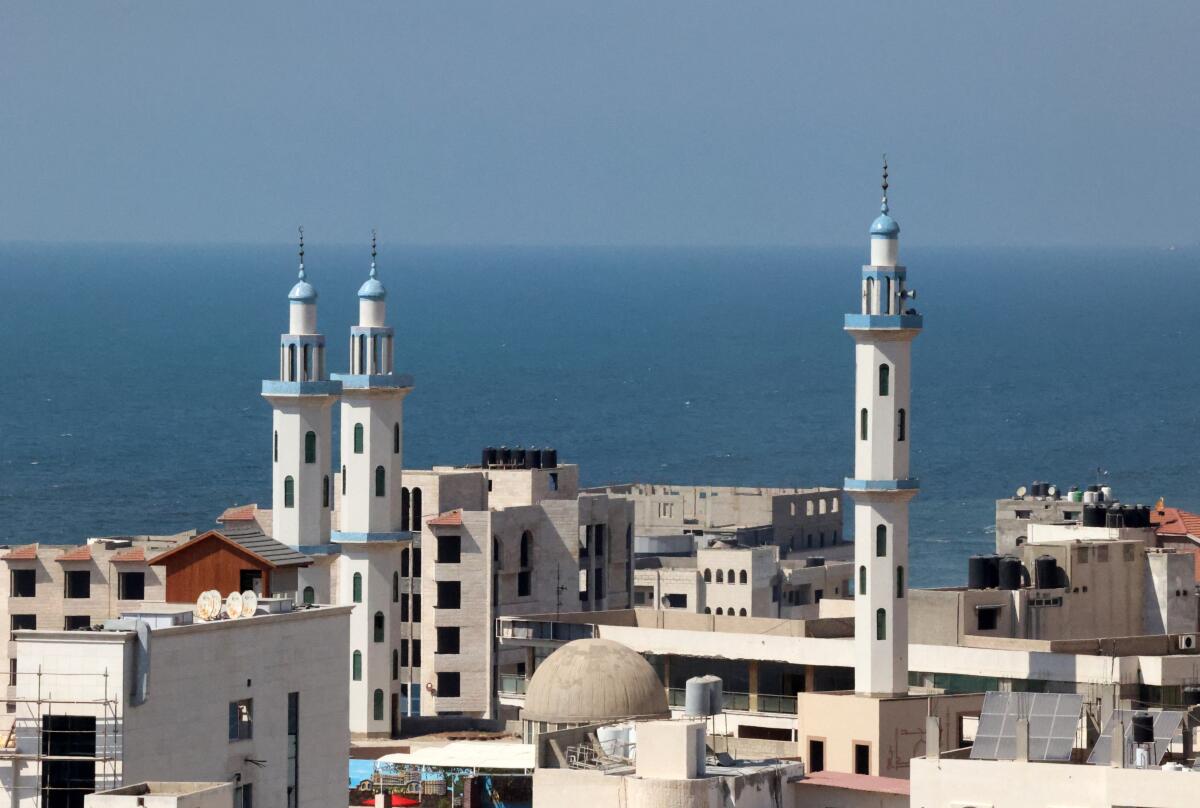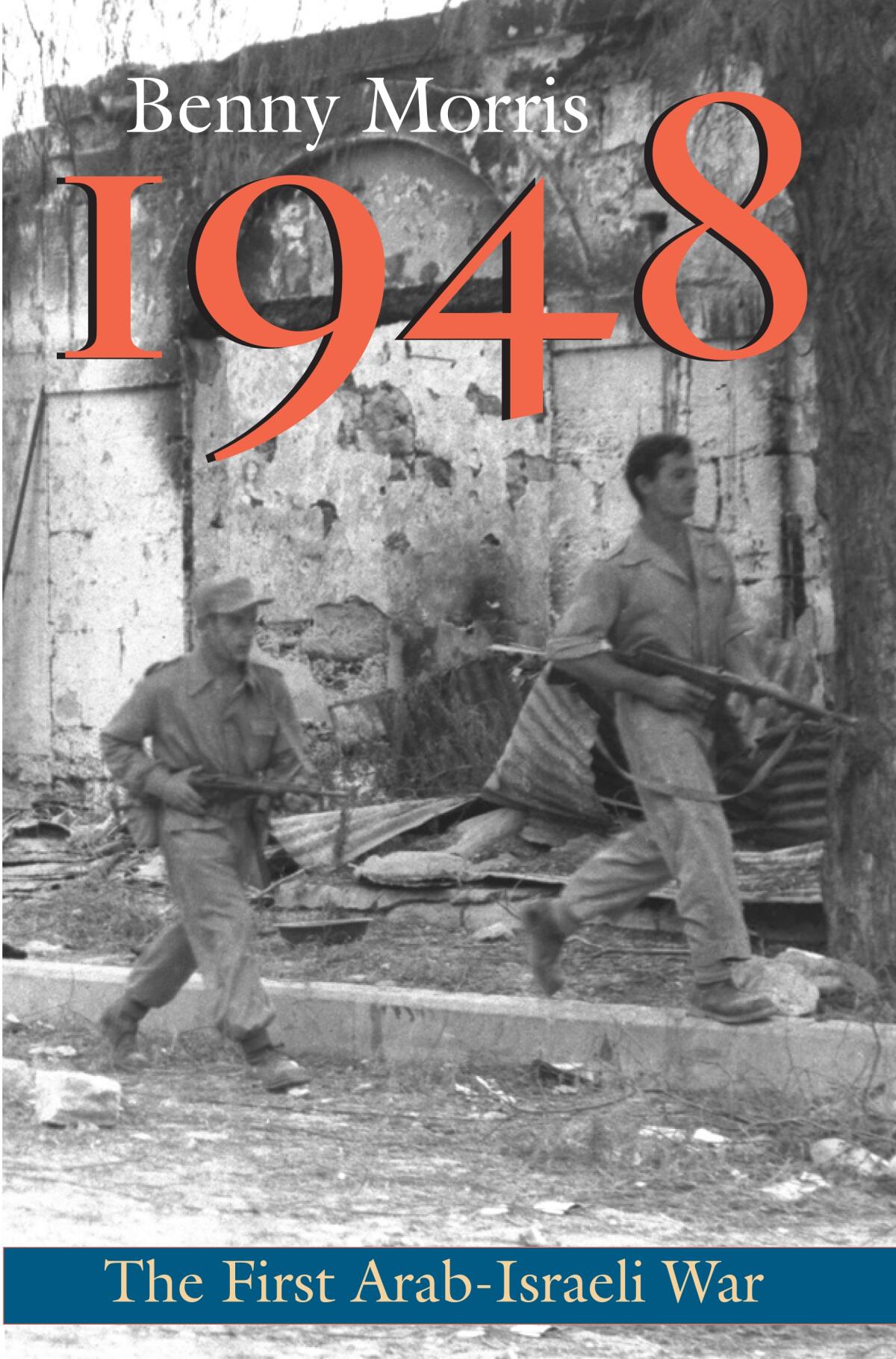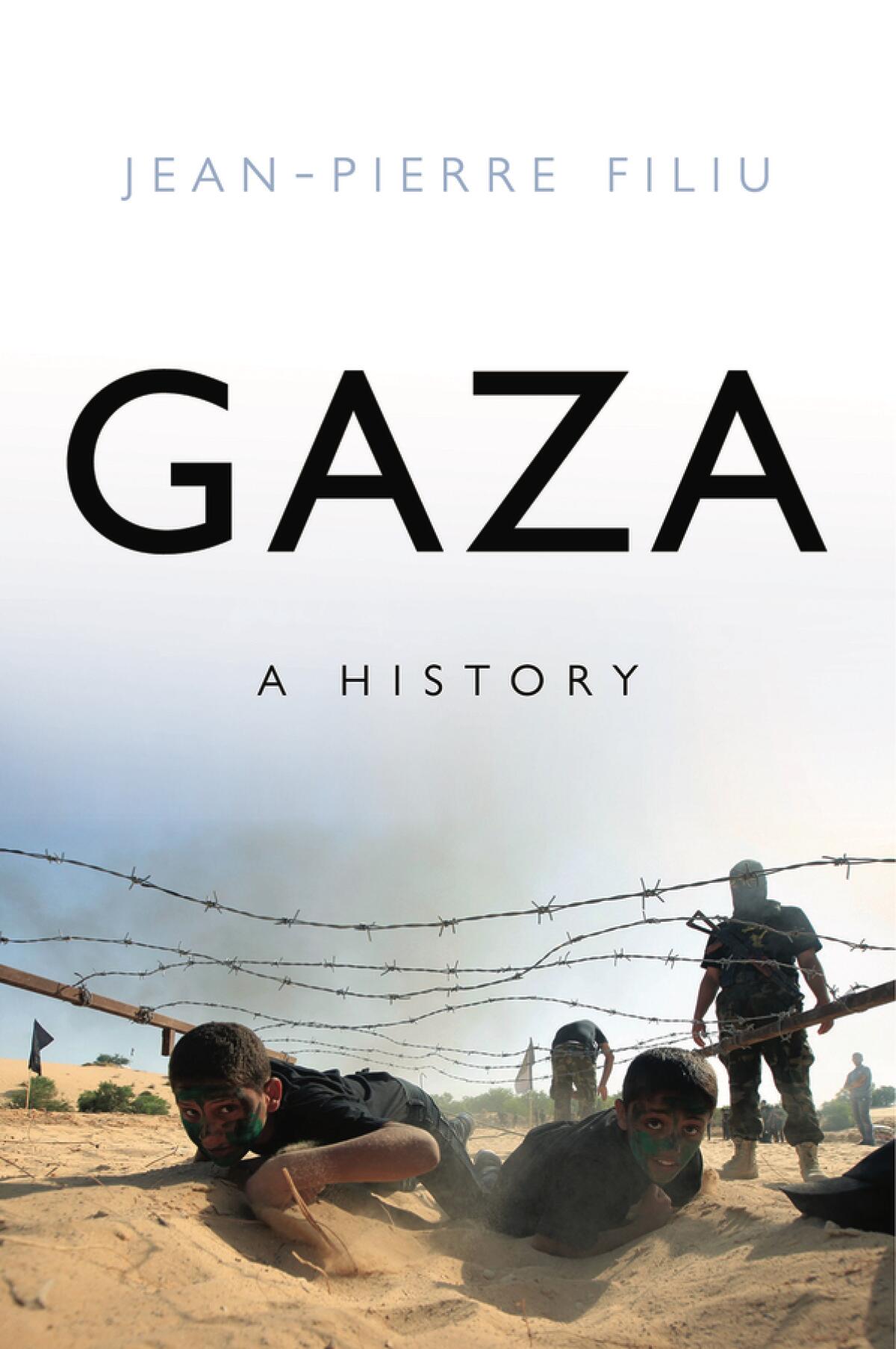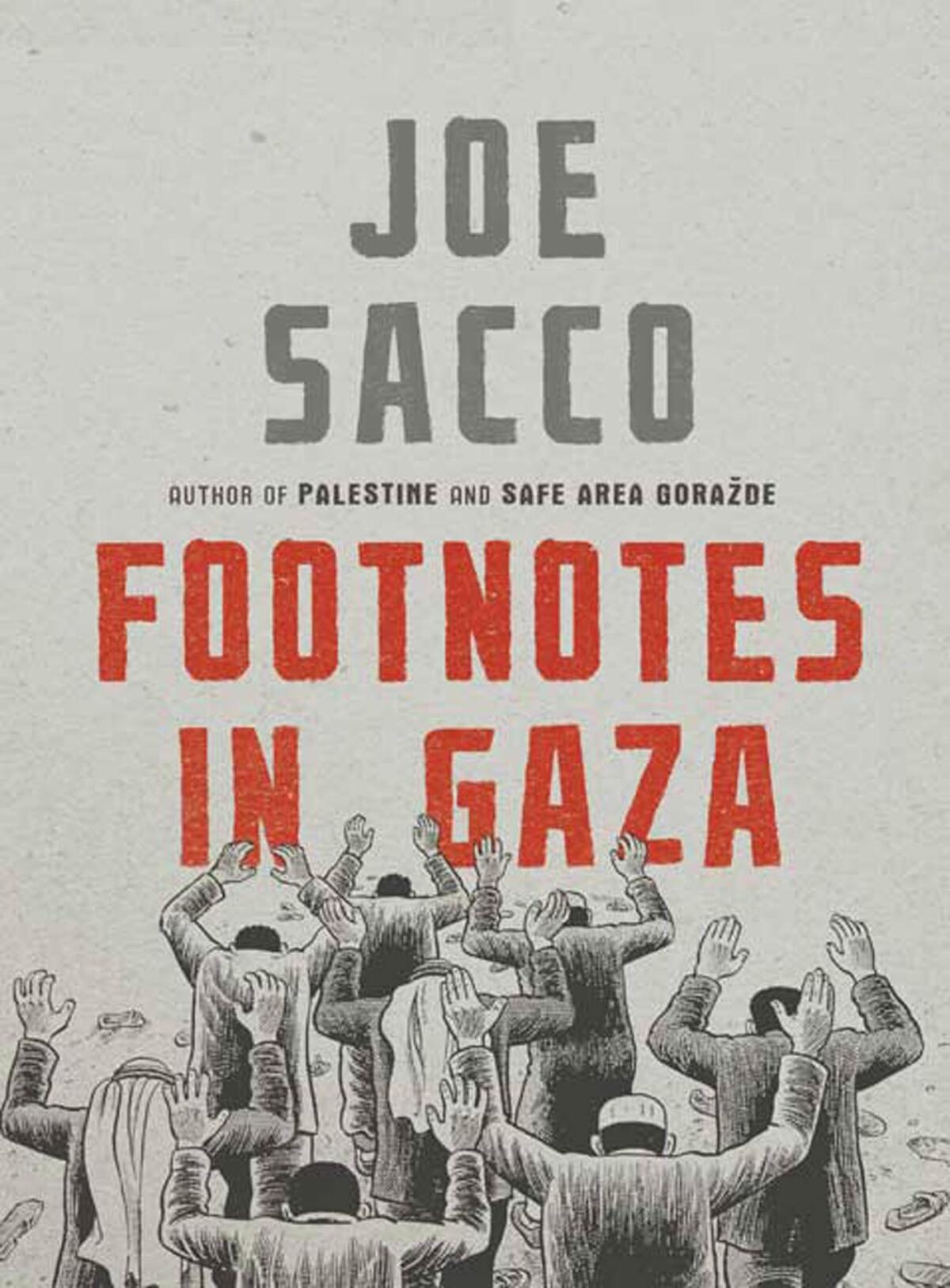14 essential books for understanding the Israel-Hamas war, according to experts

- Share via
Decades before the latest eruption of war in Israel and Gaza that began with Hamas’ Oct. 7 massacre — and well before Internet algorithms amplified misinformation — the Israeli-Palestinian conflict was already a source of confusion, competing claims, “Rashomon”-like narrative clashes. Even basic facts seem to defy confirmation or debunking.
Nonetheless, we are obligated to try to understand, and books are the best place to start. To build a preliminary reading list in hopes of covering as much territory as possible — without sacrificing factual rigor or overwhelming even the intrepid reader — we asked authors (scholars, historians, memoirists, novelists) to each pick two or three books they would insist are essential to understanding the complexities and the human toll of the conflict.
Several of our polled writers wound up on the short list, sometimes recommended by historians with whom they have fundamental disagreements. This in itself is heartening, but it’s not to say that what follows is anything like a comprehensive or even a representative list. It’s simply a set of starting points, whether you’re interested in memoirs or academic surveys, the seeds of the Israeli state or the ancient history of the Gaza Strip. Consider it an open invitation to learn more. —Boris Kachka
Contributors: Tareq Baconi, Khaled Elgindy, Gershom Gorenberg, Isabella Hammad, Adina Hoffman, Rashid Khalidi, Antony Loewenstein, Benny Morris, Avi Raz, Avi Shlaim, Nathan Thrall.
O Jerusalem!
By Dominique Lapierre and Larry Collins
A meticulously detailed oral history of the founding of Israel — day by day, minute by minute — constituting a portrait of heroism and struggle on all sides, as kaleidoscopic as “War and Peace,” only true. Gershom Gorenberg, author of “The Accidental Empire” and other critical histories of Israel, considers it essential even if, all these years later, necessarily incomplete: “Still the best popular history — keeping in mind that much source material has been revealed since it was written.”

1948: A History of the First Arab-Israeli War
By Benny Morris
“The historian in me takes the long view of the conflict,” says Gorenberg, and 1948 — the war that began all Arab-Israeli wars — is a logical starting date: the moment Israel was created, followed by war and the mass evacuation that Palestinians refer to as the Nakba. “Benny Morris’ ‘1948’ is the most comprehensive history,” Gorenberg says. Morris, once controversial for his revisionist criticism of Israel, is now considered mainstream or even right wing. But his books are deemed to be foundational. In the context of the current war, Avi Raz, author of “The Bride and the Dowry” and other important books, also recommends Morris’ “The Birth of the Palestinian Refugee Problem.”
A Tale of Love and Darkness
By Amos Oz
Morris, for his part, calls this magisterial memoir by the late Israeli novelist “brilliant (if overlong),” but its length is merited by the scope of Oz’s project — an early history of Israel nested inside a painful family story. Opening on the moment when the United Nations approved the Israeli state (when he was 8), Oz moves through his bookish, left-Zionist upbringing among immigrants from Eastern Europe and covers the lasting scars of his mother’s suicide — as well as the cultural legacy of the Holocaust. Natalie Portman directed and starred in a 2015 film adaptation. “A very personal memoir of growing up before, during and after 1948,” adds Gorenberg.
Arabesques
By Anton Shammas, translated by Vivian Eden
Another of Morris’ suggestions is this “brilliant novel,” written in Hebrew by an Israeli Christian Arab, which renders a fictional version of a story set in the same space and across the same span of time as Oz’s, but from a Palestinian point of view. Beginning as a rural family story, it also opens out (autobiographically) when the writer-protagonist ventures out to Europe and then the U.S. — and begins doubting the narratives he has both read and written.

Gaza: A History
By Jean-Pierre Filiu
Scholar and author Tareq Baconi recommends this “excellent book on the history of Gaza,” in part because it goes back far beyond the conflict that’s shaped it over the last century. Ancient Egyptians sparred over this territory on the margins of many empires — as did Persians, Greeks, Romans, Byzantines, Ottomans and others. Understanding its past as a perennial borderland is essential to knowing how it became the crucible of one of the most bitter disputes in modern history.
The Gates of Gaza: Israel’s Road to Suez and Back, 1955-57
By Mordechai Bar-On
Morris recommends this “history that describes the origins of the 1956 Israel-Egypt war, focusing on the Gaza Strip and its majority Palestinian refugee population, anti-Israeli terrorism and Israeli retaliation 65 years ago.” In other words, this is a close account of the conflict that laid the foundations for Gaza as a perennial flashpoint — a refuge, a bargaining chip and a battlefield.

Footnotes in Gaza
By Joe Sacco
Sacco’s illustrated reportorial deep-dive felt like a breakthrough not just for journalism but also for the graphic novel — proving that what we once called comics can be a conduit for the darkest and most serious material. Nathan Thrall, author of the recent book “A Day in the Life of Abed Salama,” calls it “a powerful and brilliant work of reportage that uncovers, in the form of a graphic novel, an Israeli massacre in Gaza in 1956, at the same time depicting in Sacco’s inimitable style the present-day lives of the people of Rafah and Khan Younis.”
The Bride and the Dowry
By Avi Raz
The Israeli-born Oxford scholar’s influential history frames Israel’s expansion beyond internationally recognized borders as a bargain made without sufficient forethought, leading to the cycle of stalemate, conflict and oppression that persists to this day. “A penetrating work of history,” says Thrall, “that explains the central dilemma of Israeli leaders after conquering Gaza and the West Bank in 1967: They liked the dowry (and at first were especially keen on annexing Gaza) but not the bride (the Palestinian population, which they hoped to ‘relocate’ outside Gaza in order to annex the territory).”
The Hundred Years’ War on Palestine
By Rashid Khalidi
“This is a brave, brilliant, magisterial and highly important book,” Avi Shlaim, author of “The Iron Wall” and other works of history, notes in an endorsement of the book. “It is not merely a work of outstanding historical scholarship but of high drama and fascinating narrative. Khalidi places the policies of Palestinian, Zionist and American leaders under an uncompromising lens. From his powerful survey of the past, he draws lessons for the present and maps out a different, more hopeful, trajectory.” Isabella Hammad, author of “The Parisian” and other novels, calls it “accessible and lucid, meticulous and indispensable.”

After the Last Sky
By Edward W. Said
The late, Palestinian Christian-born scholar of anticolonialism wrote several influential volumes on conflicts around the world, including a memoir, “Out of Place.” Hammad particularly recommends this 1986 book, “a long essay accompanied by and responding to a series of photographs of Palestinians by the Swiss photographer Jean Mohr. This book explores the multifariousness of Palestinian experiences with tenderness and insight.” Adina Hoffman, author of “Till We Have Built Jerusalem: Architects of a New City,” calls this Said’s “least outwardly polemical work, though it’s among his most persuasive, and moving ... searching essays about what might be called the varieties of Palestinian experience.”
The Gaza Strip: The Political Economy of De-Development
By Sara Roy
“The Gaza Strip is not backward and impoverished because its residents are lazy but because Israel’s regime did not give it a chance to flourish,” says Shlaim. “Between 1967 and 2005, a classic colonial situation prevailed. Roy, a Jewish scholar at Harvard, the daughter of Holocaust survivors, is the leading expert on the Gaza Strip. She has written four books on Gaza. This first, ground-breaking book shows in detail the various measures by which Israel systematically thwarted the growth of industry in the Gaza Strip and exploited the enclave as a source of cheap labor and a market for its own goods until its unilateral disengagement in 2005.”

Hamas Contained
By Tareq Baconi
Khalidi recommends Baconi’s inside account of Hamas, which tracks its journey from a fringe group to a governing body of a sort — only to conclude that its dedication to violence would forever hobble Palestinian goals. The Oct. 7 massacre undermines his narrative of moderation, but its consequences confirm his conclusion. Khaled Elgindy, an author and senior fellow at the Middle East Institute, says: “Despite certain aspects somewhat being overtaken by events, it remains the most authoritative and incisive volume out there on the internal dynamics, paradoxes and other forces that animate Hamas’ decision-making and relationships with other Palestine political actors.”
A Rebel in Gaza: Behind the Lines of the Arab Spring, One Woman’s Story
By Asmaa Ghoul and Selim Nassib, translated by Mike Mitchell
Raz recommends this memoir of Ghoul’s coming-of-age as a secular journalist and activist. Opposed to both Hamas and Fatah, she was subject to beatings and imprisonment, but it was during Israel’s 2014 bombardment of Gaza that Ghoul told her story to Nassib via meetings, phone calls, Skypes and text messages. The sense of place comes through, as does the feeling of what it’s like to feel the bombs rain down, contending with mortal enemies both within and outside the borders of the strip.
So What: New and Selected Poems, 1971-2005
By Taha Muhammad Ali, translated by Peter Cole, Yahya Hijazi and Gabriel Levin
The late Palestinian poet’s new and collected work, Hoffman says, “beams through the current darkness: ‘After we die, / and the weary heart / has lowered its final eyelid / on all that we’ve done, / and on all that we’ve longed for, / on all that we’ve dreamt of, / all we’ve desired / or felt, / hate will be / the first thing / to putrefy / within us.’”
More to Read
Sign up for our Book Club newsletter
Get the latest news, events and more from the Los Angeles Times Book Club, and help us get L.A. reading and talking.
You may occasionally receive promotional content from the Los Angeles Times.







